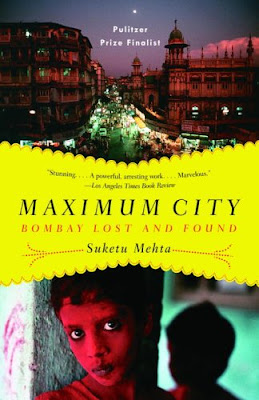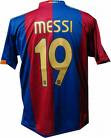
So I am doing a little bit of leisure reading and I picked up Suketu Mehta's Maximum City: Bombay Lost and Found, and have found it an extremely fascinating read, especially because my knowledge of Bombay/Mumbai is practically nil. What I like most about Mehtu's book is his characterization of the politicians, thugs, holy men, and common Mumbai denizens; Mehtu catches them displaying their truest emotive trappings.
First published in 2004, Mehta's book chrocicles many events. The first section of the book is devoted to "Power" and its many manifestations like "Powertoni". According to Mehtu, "powertoni" is the word that Mumbains use to denote the power of attorney, but it so much more than that. "Then I realized what the word was: a contraction of power of attorney, the awesome ability to act on someone else's behalf or to have others do your bidding, to sign documents, release wanted criminals, cure illnesses, get people killed. Powertoni: a power that does not originate in yourself; a power that you are holding one somebody else's behalf" (2004, pg. 58).
Mehta expands on his idea of Powertoni and says "it is the only kind of power that a politician has; a power of attorney ceded to him by the voter. Democracy is about the exercise, legitimate or otherwise, of this powertoni" (2004, pg. 59) According to Methu, the organization that has the most powertoni in Mumbai is the Shiv Sena, and the leader of the Shiv Sena, Bal Keshav Thackeray. The Shiv Sena is the political organization that advocates heavily against Muslim influence in Mumbai and were the catalyst for the riots of 1992-1993 between Hindus and Muslims. In that riot "317 people died, many of them Muslims" (2004, pg. 40). And most of the rioting was carried out by the thugs of the Shiv Sena.
According to Mehta, the Shiv Sena or Shivaji's Army was formed in 1996 and named after the "seventeenth century Maharashtrian warrior king who organized a ragtag band of guerilla fighters into a fighting force that would humble the Mughal emperor Aurangzeb and, in time, hold sway over most of central India" (2004, pg. 41). Mehta interviews and writes about the thugs that make powertoni happen for Shiv Sena, Amol and Sunil. These "thugs" have made their way from the bottom castes of Mumbai into positions of influence and power, solely based on the powertoni they have exercised on behalf of the Shiv Sena.




.png)
